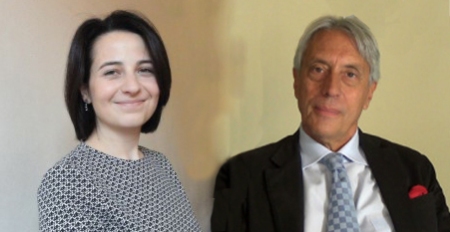The ‘surprise’ question in advanced cancer patients.
A prospective study among general practitioners
Prof Guido Biasco, Academy of Sciences of Palliative Medicine, Bentivoglio, Bologna, and Dr Giulia Galli, ‘Giorgio Prodi’ Center for Cancer Research, Alma Mater Studiorum, University of Bologna, Bologna, Italy, explain the background to a longer research article that has been selected as Editor’s Choice in the July edition of Palliative Medicine.
A major challenge in tailoring care to meet the specific and varying
needs of terminally ill patients is the integration and co-ordination of
the work of different professionals in different settings. In Bologna,
with a population of about 385,000 people, palliative care is provided
by three inpatient hospice units run by the M.T. Chiantore Seràgnoli
Hospice Foundation, that match the estimated local need for inpatient
care, and home-based care, which is delivered jointly by the
multidisciplinary public health-based ‘Advanced Integrated Assistance
teams’, coordinated by general practitioners (GPs), and the specialized
teams of non-profit associations.1
To achieve a unified care approach, we established a research a team
with professionals from inpatient and home-based care settings, together
with researchers from the Academy of Sciences of Palliative Medicine
and the University of Bologna. That is how the ‘Surprise Question
Practitioners’ group’ (SUQ-P) began in collaboration with family
physicians. In Italy, as in many other countries, GPs are the first and,
often, the longest-lasting contact that people have with the health
care system. They ensure continuity and coordination of care for all
patients across all settings. As GPs’ involvement in the palliative care
team is associated with improved delivery of evidence-based treatments,
increased diagnostic accuracy and better identification of issues in
the delivery of care,1-2 it is of great importance for primary care professionals to strengthen their end-of-life care competence and skills.
With increasing evidence supporting the importance of an earlier
palliative approach to better meet the needs of terminally ill patients,3
we introduced a palliative care screening instrument that is already
widely used in other countries. The ‘surprise’ question (SQ) was
designed over 25 years ago in an end-of-life care programme developed in
the state of Washington (USA) to overcome the difficulty of getting
referrals from the primary care setting. Since then, the SQ has been
used as a screening tool aimed at identifying patients who, due to their
limited survival expectation, are most likely to need palliative care
intervention. Although the use of the SQ has been recently tested in
specialist contexts, to our knowledge, there was no study prior to ours
assessing its prognostic value in primary care.
The GPs involved were very enthusiastic; our study showed that when
the matter is brought to their attention, they accurately estimate
survival in more than 83% of their patients, while they tend to be
over-pessimistic in prognosticating death within the year. The GP’s
opinion of shortened life expectancy is significantly associated with
the patient’s outcome in one year’s time, confirming the important role
of the SQ in identifying patients potentially needing palliative care.
Next steps
We are now collaborating with the Italian family physicians’ association to extend the study nationally. The research will assess GPs’ ability to identify the actual palliative care needs of the patients with a negative SQ answer, their attitude in the planning and delivering of primary end-of-life care, and referral and coordination of the local specialist palliative care facilities.
We are now collaborating with the Italian family physicians’ association to extend the study nationally. The research will assess GPs’ ability to identify the actual palliative care needs of the patients with a negative SQ answer, their attitude in the planning and delivering of primary end-of-life care, and referral and coordination of the local specialist palliative care facilities.
We would like to thank all our collaborators. You can email me to
comment about our research, or to collaborate in similar projects that
you might be carrying out – we look forward to hearing from you.
References
- Beccaro M, Lora Aprile P, Scaccabarozzi G, et al. Survey of Italian General Practitioners: Knowledge, Opinions and Activities of Palliative Care. J Pain Symptom Manage 2013; 46: 335-344.
- Mitchell GK. How well do general practitioners deliver palliative care? A systematic review. Palliat Med 2002; 16: 457-464.
- Parikh RB, Kirch RA, Smith TJ, et.al. Early specialty palliative care-Translating data in oncology into practice. N Engl J Med 2013; 369:2347-2351.
Links and resources

No comments:
Post a Comment